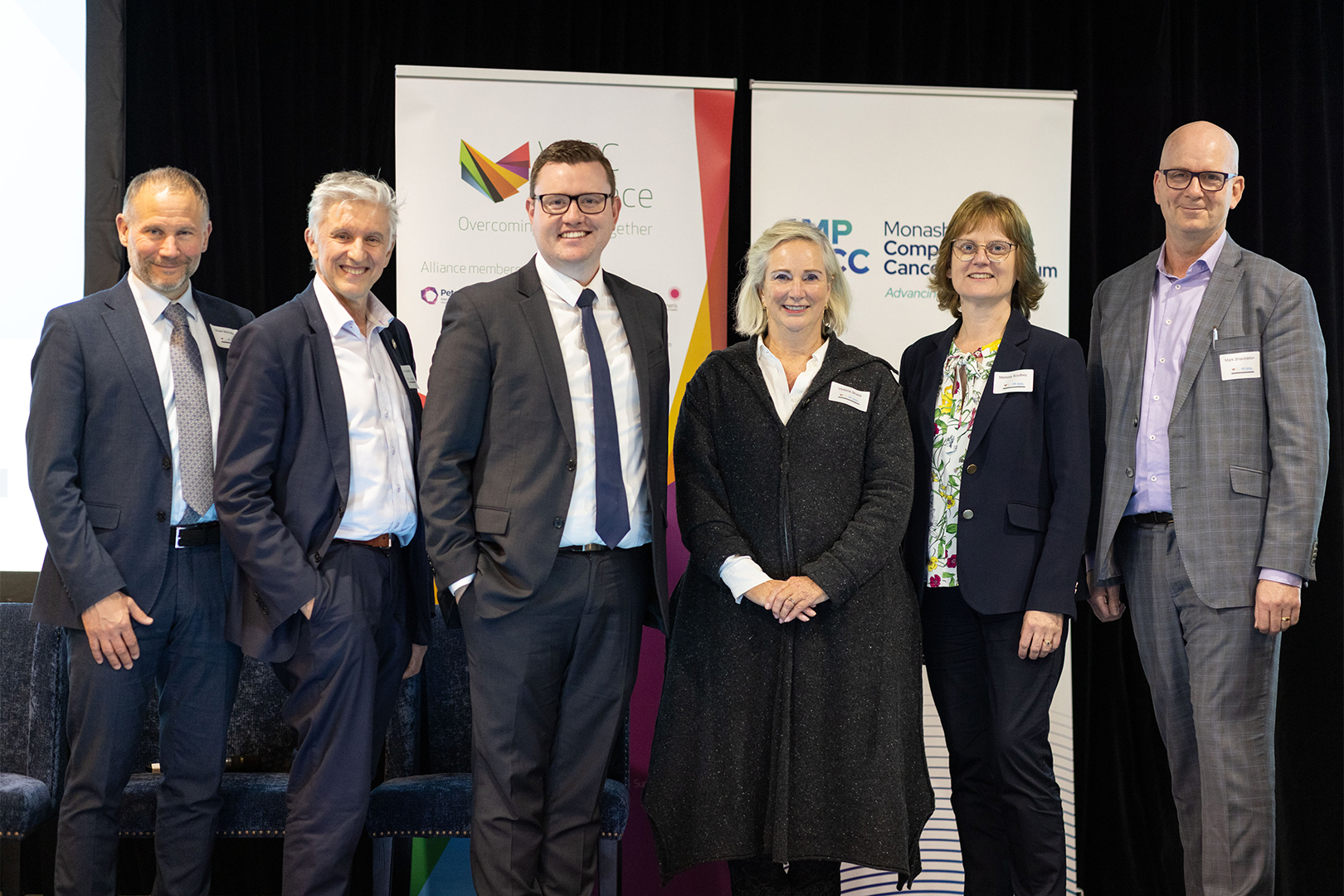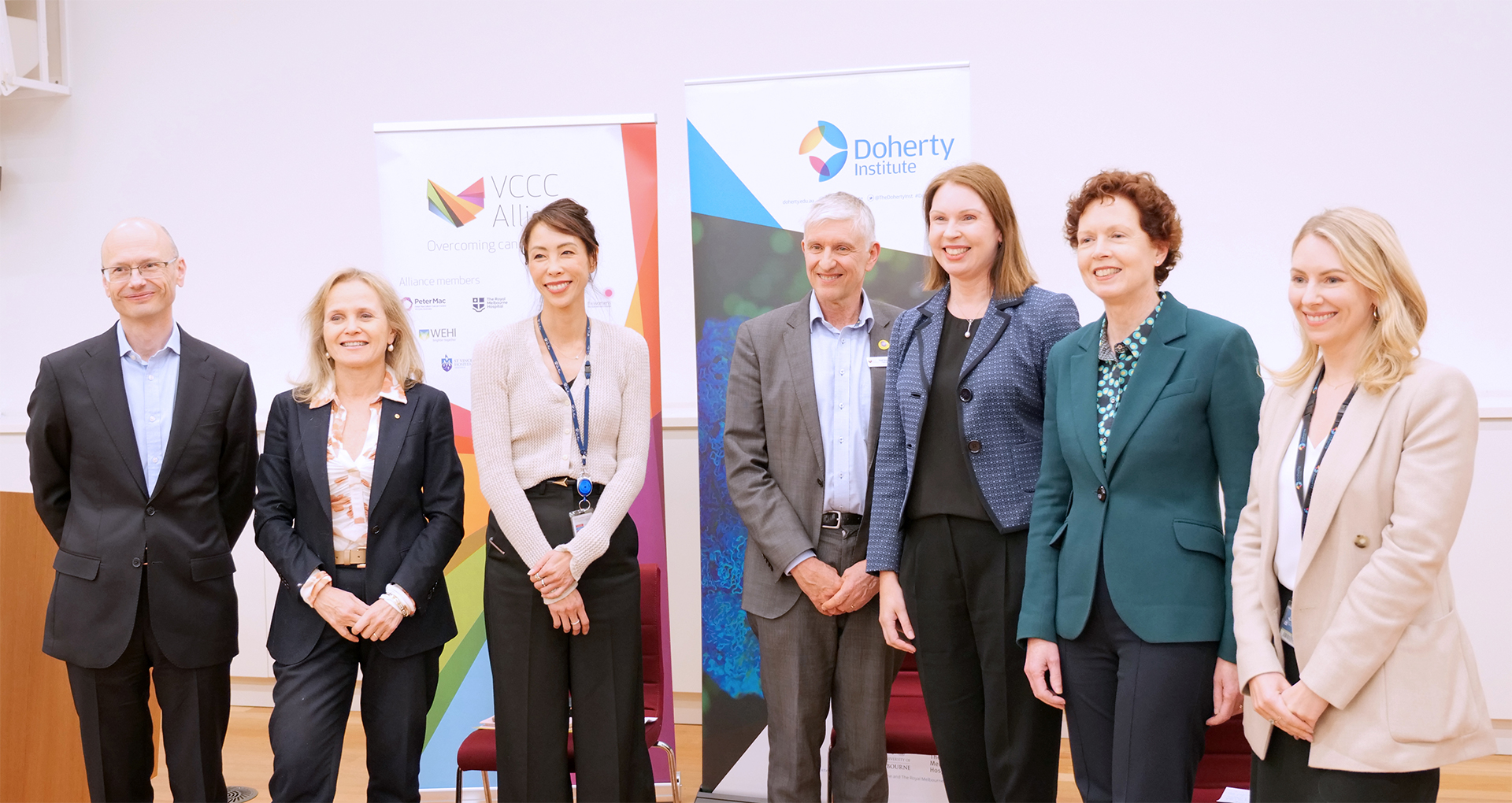






The opportunities to accelerate improvements in outcomes for patients with cancer have never been greater.
Since the last issue of Alliance, I was thrilled to attend the American Association for Cancer Research’s Annual Meeting in person for the first time since 2019. Despite the convenience of online meetings and video technology for communication, nothing beats being in a room with your colleagues, seeing the latest data and discussing it. It’s incredibly empowering and effective.
Tackling complex problems like cancer requires a lot of dialogue and interaction between cancer researchers, clinicians and patients, so I came away from AACR incredibly enlivened and excited as I reflected about just how far cancer research has come.
There has been absolutely phenomenal acceleration in progress in cancer research over the past 10 years.
There’s been a transformation in cancer therapeutics with protein engineering and many new biologics based on protein engineering now coming into clinical trials. There have been enormous advances in chemistry, with significant advances in the way that one can make small molecules to turn off proteins.
The development of CAR-T cell therapy was in its infancy 10 years ago, and now there are several products approved and it is a major area of cancer research. There is also huge progress being made in targeting the RAS oncogene, which in my view is a Holy Grail of cancer therapeutics. Fantastic to see lead roles of our investigators in these exciting developments with presentations from both Prof Jayesh Desai (view abstract) and Prof Ben Solomon (view abstract) in a session on targeting RAS at AACR.
But the biggest impact by far has been the growth in immuno-oncology, and the universal recognition of the importance of the immune system in cancer. Prof Laura MacKay from the Doherty Institute and University of Melbourne presented her world-leading work on T-cells at AACR.
Our role at the VCCC Alliance is to adopt and foster all this amazing innovation and make sure that patients in Victoria get the benefits of all that fantastic research.
I was delighted last week to attend the first Victorian Precision Oncology Summit, hosted by the VCCC Alliance and Monash Partners Comprehensive Cancer Consortium and supported by the Victorian Government. Precision oncology is rightly a big focus for us at the VCCC Alliance, and to see a jam-packed room with lots of energy and engagement was very encouraging.

In Australia, we’re unfortunately still playing catch-up on integrating the use of DNA-based sequencing technology with panels into routine patient care, and that was a major focus of the summit. I’d like to thank all my colleagues from across the state and our keynote speakers from beyond for their contributions.
These combined efforts will move us towards a roadmap to try to shift the dial for Victoria. However, there is more to personalised and individualised cancer treatment than just DNA sequencing technology, such as immune profiling and truly individualised treatments like the new individualised neo-antigen vaccine.
The term ‘breakthrough’ is thrown around a lot in medical research and I’ve witnessed a small number of true breakthroughs in my career. The use of mRNA vaccine technology for individualised neo-antigen vaccines I think is going to be another one of those moments…I remember where I was when the data first came out.
I was very pleased to partner with The Doherty Institute to host a really exciting seminar yesterday, exploring the world of cutting-edge mRNA technologies, their implications and efficacy in cancer vaccines and opportunities in Victoria.

For me, the seminar highlighted the value of collaboration between industry, clinicians, biomedical researchers and patients, and that was exemplified by what’s been achieved to date by this new technology.
I’m so pleased, as Dr Amanda Caples informed the audience at the seminar, that Victoria is invested in leading the next generation of mRNA vaccines and medicines, including cancer treatments, and Melbourne is on track to become an expert hub for ground-breaking medical research and a global leader in mRNA research, manufacturing and training.
What’s happened with mRNA technology is just a testament to investment in science and what can be delivered for humanity. This is the fastest pace that medical science has moved at in the history of humankind to bring huge benefits for patients and the community.
Congratulations to all Victorian cancer researchers who did us proud at AACR.
Professor Grant McArthur
Executive Director
